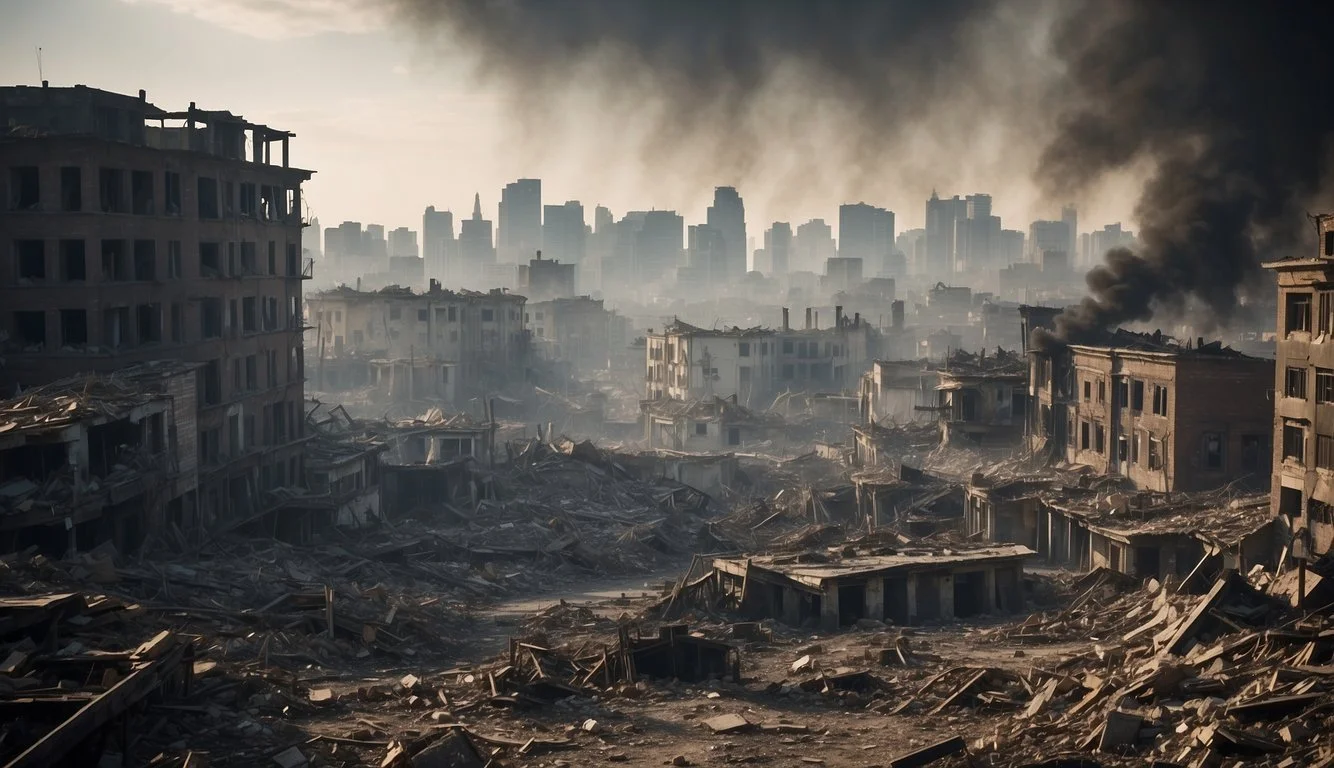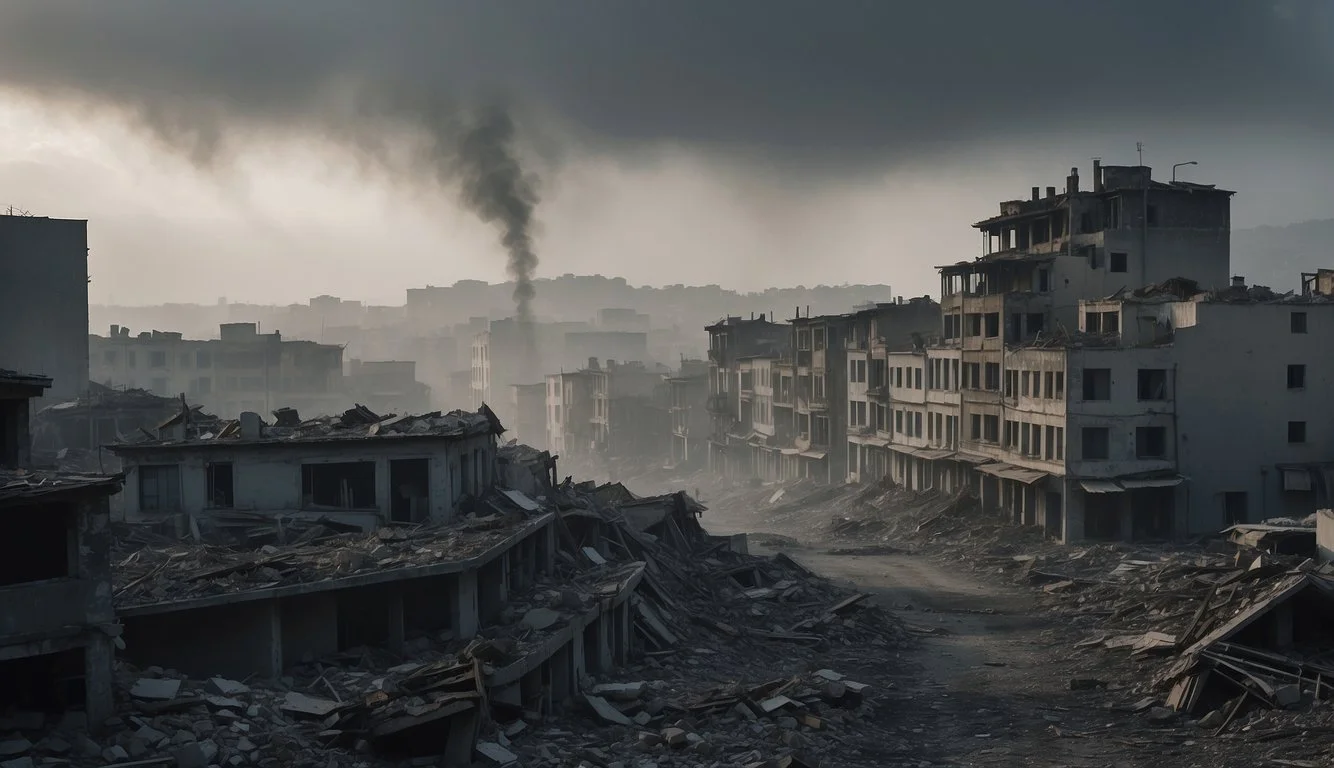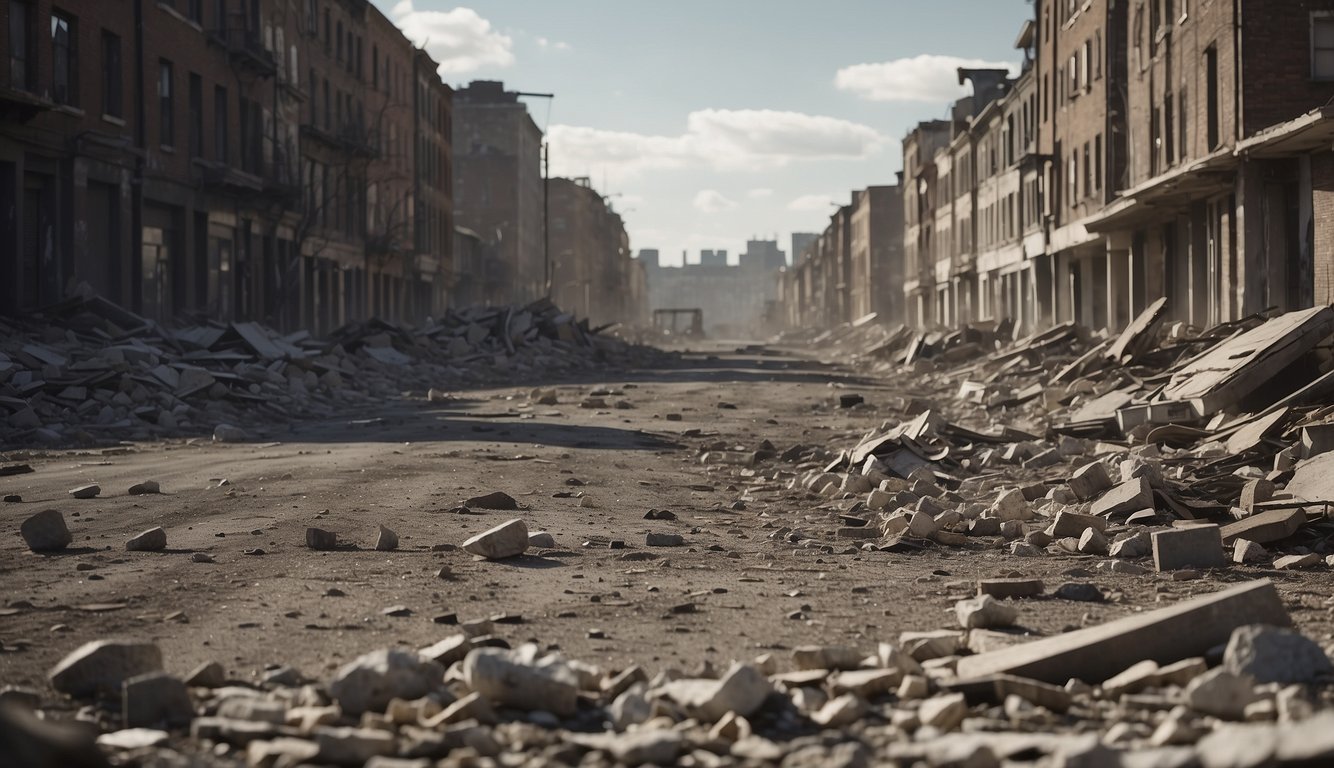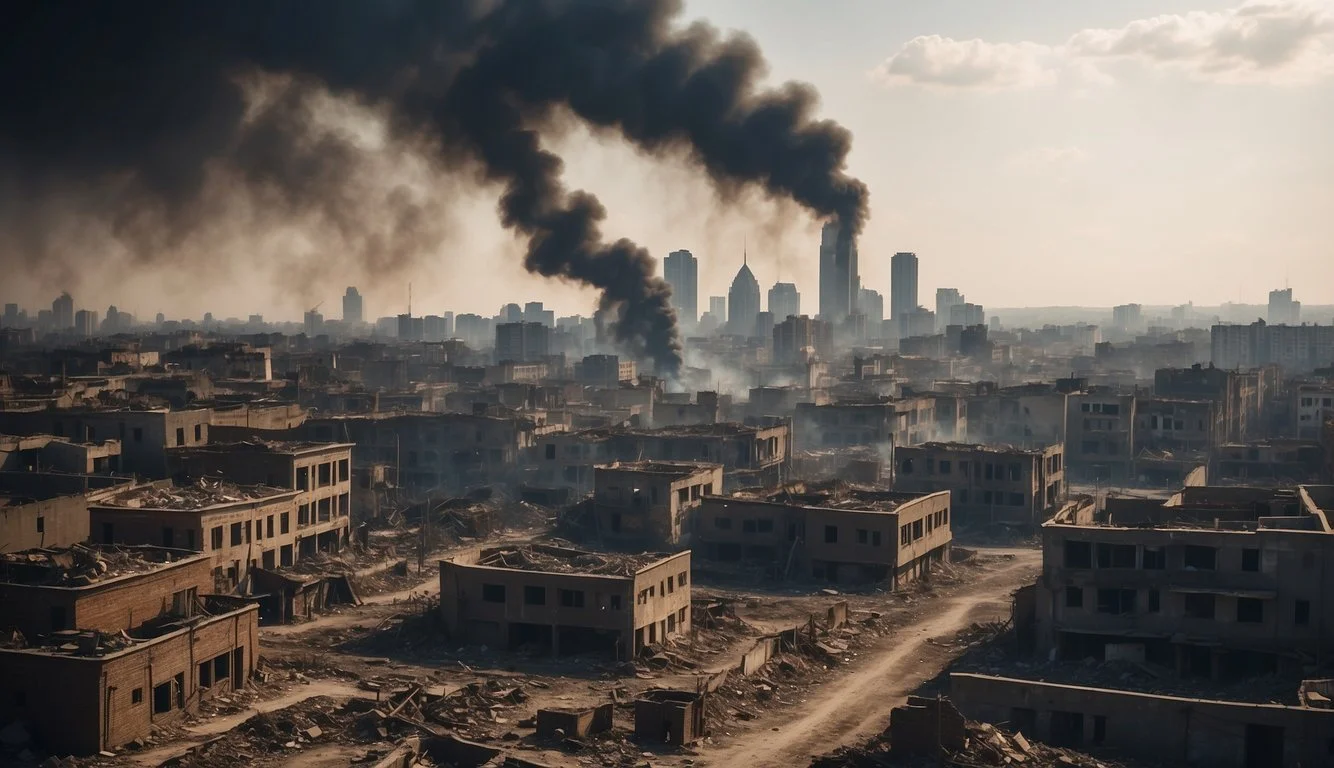Documentary Review: For Sama (2019)
A Powerful Insight into War-torn Syria
The documentary For Sama (2019) offers a poignant and unfiltered view into the harrowing experiences faced by civilians during the Syrian Civil War, particularly in the besieged city of Aleppo. Co-directed by Waad al-Kateab and Edward Watts, this film serves not just as a record of conflict, but also as a deeply personal letter to Waad's daughter, Sama, documenting the struggles, love, and hope that persist amid chaos.
The film’s narrative is driven by raw and emotional footage, capturing both the brutality of war and the resilience of the human spirit. Through the eyes of Waad, a young mother and activist, viewers are offered a rare and intimate glimpse into the day-to-day life of a family caught in a relentless conflict.
For those interested in understanding the profound human impact of the Syrian conflict, For Sama stands out as a compelling and essential watch. The documentary's ability to combine personal storytelling with the broader socio-political context renders it a powerful cinematic journey that demands attention.
Background of 'For Sama'
For Sama is a deeply personal documentary film, co-directed by Waad al-Kateab and Edward Watts. Released in 2019, it chronicles Waad's life during five years of the Syrian uprising in Aleppo.
The film is unique because it combines the roles of a journalist, mother, and rebel, offering an intimate perspective on the conflict.
Waad al-Kateab, a Syrian journalist, began filming in 2011, documenting the harrowing realities of life in Aleppo. Amidst the turmoil, she fell in love, married, and gave birth to her daughter, Sama. These personal milestones are juxtaposed against the violence and devastation surrounding her.
The title, "For Sama," reflects Waad's intent to explain her choices and experiences to her daughter. Through her lens, viewers witness not only the destruction but also moments of love, resilience, and hope.
The film also features Hamza al-Kateab, Waad's husband, who is one of the few doctors remaining in Aleppo. His role emphasizes the dire situation faced by medical professionals during the conflict.
Waad's footage was originally shared through news outlets, capturing global attention. This raw, unfiltered view of the war's impact on civilians paved the way for the creation of the full-length documentary.
"For Sama" has received critical acclaim for its honesty and emotional depth. It offers a unique narrative that distinguishes it from other documentaries about the Syrian conflict by focusing on the personal consequences of the war rather than broad historical events.
The film is available in various formats and has been screened at numerous film festivals, garnering multiple awards for its powerful storytelling and cinematography.
Synopsis of the Documentary
For Sama is a poignant and personal documentary directed by Waad al-Kateab and Edward Watts.
The film serves as both a diary and a letter from Waad to her daughter, Sama, documenting life during the Syrian civil war.
This heart-wrenching narrative begins in Aleppo, where Waad captures the daily struggles and resilience of the people amidst the conflict.
Inside a besieged hospital, audiences witness the horrors and heroism that unfold. The film spans five years, providing an intimate look into Waad's journey from student to citizen journalist and eventually to mother.
The raw footage showcases bombings, surgeries, and the stark realities of war, offering a ground-level view that is rarely seen.
Waad's husband, Hamza, plays a significant role, working as a doctor in the makeshift hospital. His efforts to save lives under dire conditions add another layer of emotional weight.
Through this lens, the documentary reveals the impact of war on families, especially on mothers and children. The juxtaposition of moments of love and laughter against the backdrop of chaos highlights the resilience of the human spirit.
For Sama stands out not just as a depiction of conflict, but also as a testament to the strength and endurance of those who lived through it. Waad al-Kateab’s personal narrative elevates the film from mere reportage to an evocative and powerful piece of storytelling.
Filmmaking Techniques
"For Sama" showcases the brutal realities of the Syrian conflict with exceptional craftsmanship. The filmmakers employ distinctive cinematography, precise editing, and a powerful narrative structure to effectively convey the emotional and historical gravity of the events.
Cinematography
The cinematography in "For Sama" plays a crucial role in immersing the audience in the harrowing experiences faced by the people of Aleppo. The directors use handheld cameras to provide an intimate, unfiltered view of the war-torn city. This technique allows viewers to feel the chaos and urgency of the situation. With raw, unpolished footage, the film captures both the beauty and devastation of Aleppo, emphasizing the resilience of its inhabitants amid destruction.
Editing
Editing is meticulously crafted to heighten the emotional impact of the documentary. The film interweaves personal moments with scenes of conflict, creating a poignant contrast that underscores the human toll of the war. Quick cuts between calm, domestic life and the sudden chaos of bombings keep viewers on edge. By juxtaposing these scenes, the filmmakers highlight the constant state of uncertainty and danger faced by the civilians.
Narrative Structure
The narrative structure of "For Sama" is both personal and comprehensive. Told from Waad al-Kateab's perspective, the story begins with her life before the uprising and follows her journey through the siege of Aleppo. The chronological yet interwoven narrative allows the audience to witness the transformation of daily life into a struggle for survival. Personal anecdotes and direct addresses to her daughter, Sama, add a deeply emotional layer, making the historical events more relatable and impactful.
Themes and Messages
"For Sama" delves into the raw and poignant realities of war while simultaneously highlighting the tender moments of motherhood and the unyielding spirit of resilience amidst chaos.
War and Conflict
The documentary paints a vivid picture of the harrowing impacts of the Syrian Civil War. It captures scenes of bombings and the life inside a besieged city, providing an unfiltered look at the destruction and suffering. Viewers witness the dire conditions in hospitals, where resources are scarce, and the relentless threat to civilian lives. By focusing on personal stories, the film emphasizes the human cost of the conflict and the devastation inflicted on innocent lives.
Motherhood and Family
At its core, "For Sama" is also a heartfelt letter from Waad Al-Kateab to her daughter, Sama. The documentary explores the struggles and fears of a mother raising a child in a warzone. It contrasts moments of joy and tenderness with scenes of violence, illustrating the duality of life during war. The bond between Al-Kateab and her daughter serves as a symbol of love and hope, offering a touching portrayal of family ties that endure even in the most challenging circumstances.
Hope and Resilience
Despite the overwhelming adversity, "For Sama" is a testament to the resilience of the human spirit. The film showcases the determination of civilians to survive and rebuild amidst the ruins. Al-Kateab’s unwavering commitment to documenting their plight and the bravery of medical staff working under fire are central themes. These stories of endurance and hope highlight how individuals can find strength and meaning, even in the face of unimaginable hardship.





